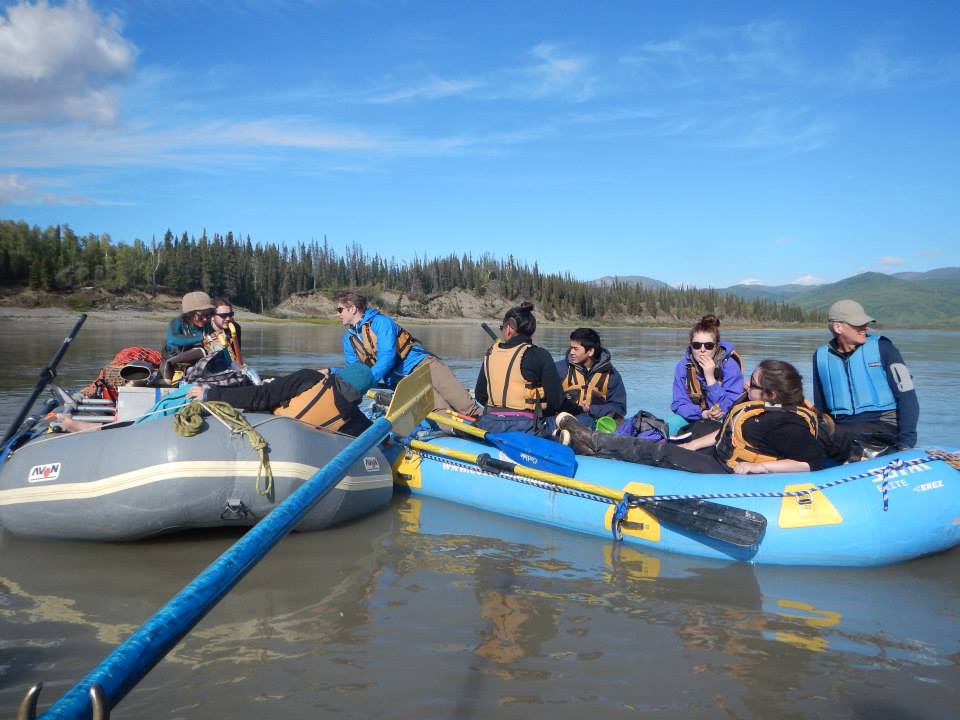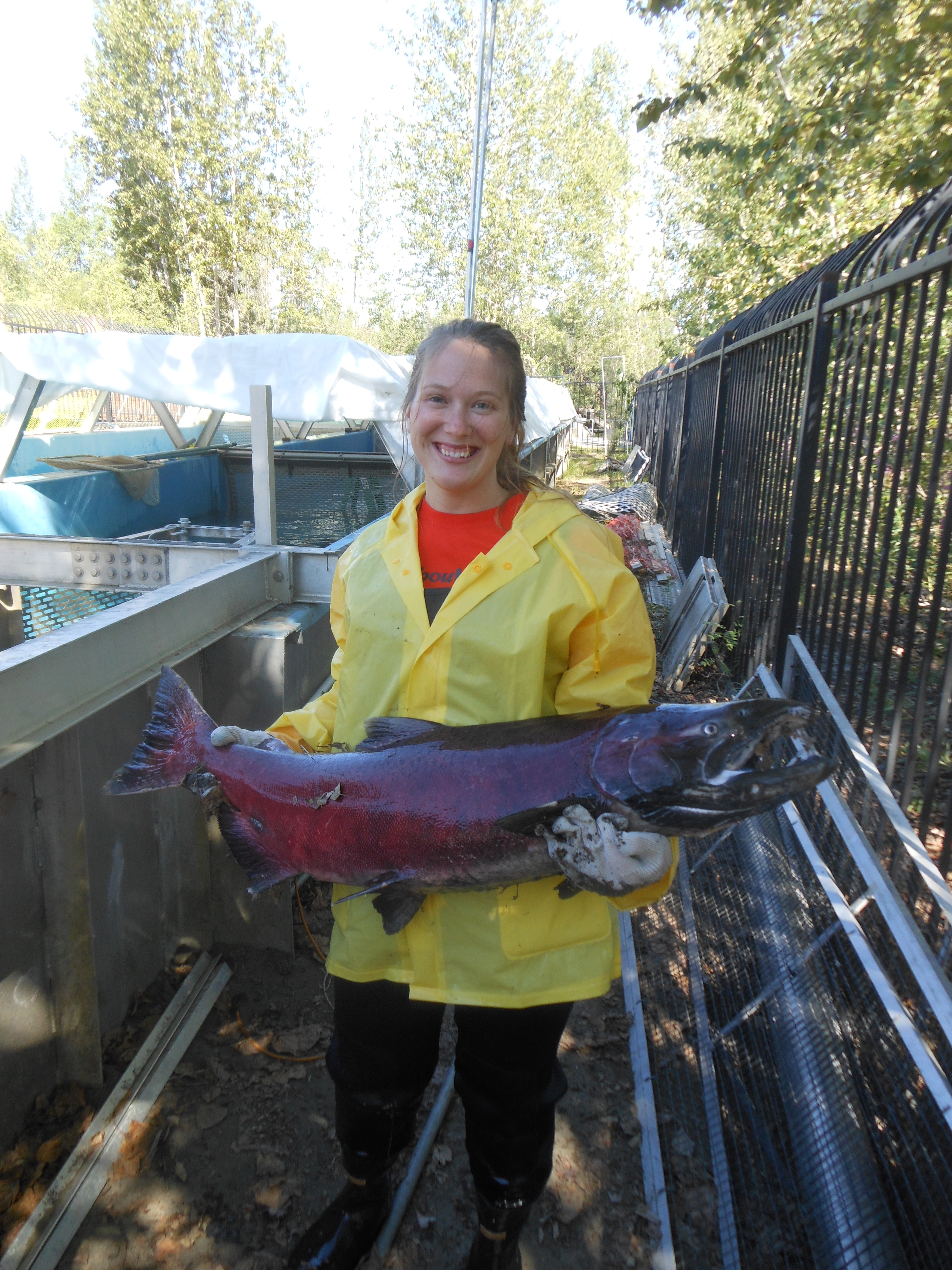by Elin Johnson
As my time at Turnagain Currents comes to a close, I think back to everything that made my experience special. The musty bat cave with its mismatched chairs and stacks of outdated literature. The partially filled out schedules and all the decisions that ended with “yeah we should get to that…” My poetry enthused counterpart and our fearless editor, creating magic with a few key strokes. Our Canadian faculty advisor always encouraging us to continue writing even when academia had sucked all of our passion out of our souls through bendy straws. This eclectic group of individuals all bound together by our mutual hatred of the sound the mini-fridge makes and our love for commas.
But what really made this endeavor so endearing was the content. Everyday we got to work with the creative accomplishments of the various APU students who had contributed to our humble journal. We all collaborated on ways to work out the kinks of each piece so that it could reach its full potential. And then we made a book. Pouring over all of our submissions and picking our favorites caused so much joy to bubble up inside me. I was proud of all the work that had been done.
Our entire process is done online in a series of emails that eventually leads to a blog post. Most of our readers discover us through our website. The website can reach an audience that 250 copies of our yearly collection just can’t. It’s also cheaper to maintain. So why do we even bother with a print copy? Well on one side of the argument its nice to work towards an end goal, and to honor our contributors with something more tangible than a post. But in my mind its something more than just that. The point of Turnagain Currents is to get people writing and everyone else reading. Now there is only one true way to read, and that is with a physical book.
I understand the concern about the price of actual books as opposed to those found floating around in the ether. I also recognize that electronic options take up less space in the real world. I even acknowledge that books are perhaps not the most environmentally friendly means of entertainment. But none of that takes away from what a book is, and what it can be. In my mind everyone who prefers an ebook over a real piece of literature is simply not reading it correctly.
Each person has their own way of devouring a text, but most everyone does something along the same lines. First, you must smell the book. Crack open the cover and take a deep whiff of those pressed pages. It is nothing like that nasty metallic twang of a Kindle! Now flip through all of the pages using your thumb. Hang your chin over the whispering leaves, and let the small breeze that’s emitting blow your hair off the sides of your neck. Make the book talk to you. Drop it from a high height – away from any pet paws that may get damaged. Slam your hand against the cover and gesticulate aggressively. Stick your index finger inside and wrap your remaining fingers around the covers, place your opposite hand into the pocket of the tweed vest you are wearing, tap the spine of the book on a wide oak table as you pace and mumble about ancient peoples or the economy. Notice what sounds each action creates. Is there a sharp THWACK like that of a ruler on knuckles? Or is there a soft boof reminiscent of a dog that is too sleepy to fully bark? Next crack the books spine. Perhaps you choose to do it softly like the caress of a lover. Or maybe aggressively and with the finality of an undertaker. Both methods are equally satisfying. Now fully read the book. Pause when there is an unnecessary death to think angry thoughts about the author, or when the protagonists finally kiss to think happy thoughts about the author. Underline or highlight your favorite passages. Rip out pages that make you sad and then hastily tape them back in when you remember you’re borrowing this book. Dog ear pages that made you think, and fold the cover all the way back so you can hold the book with one hand while you drink your coffee. Spill your tea on the edges because the way the liquid makes it crinkle matches your aesthetic. Nibble the spine so you know what the book tastes like. Throw the book up in the air and catch it a couple of times – this will make you look edgy and cool.
In short, destroy your book. Destroy your book because you love it so much. Hug it to your chest because the authors use of simile made you smile inside. None of those things can ever be done continuously to some weak little ebook. Physical books are time capsules of both who we were in the past as well as who we want to be in the future. They are permanent reminders of a moment in time where we needed to hear that story. That story that made us understand ourselves better, or our relationships, or bee colonies, or how the galaxy was formed. Books need to be loved just as much as we need to love them. Their contents need to be squeezed out as if through a juicer, showing us what the writer meant to say in the way they meant to say it. I think that’s why we care about printing our books so much. Not because we want to reward the writers, but because we want to reward the readers.
 Elin is a lifelong Alaskan with a passion for storytelling and everything outdoors. When she isn’t traveling or at the dance studio, you will most likely spot her between the pages of a book confused as to why she has become so tiny, or forcing her dog to watch the cinematic masterpieces of the 80s and 90s. Elin is always ready for an adventure, especially if there is a chance of karaoke, so don’t be afraid to pick her brain about favorite books or her true feelings about breakfast foods.
Elin is a lifelong Alaskan with a passion for storytelling and everything outdoors. When she isn’t traveling or at the dance studio, you will most likely spot her between the pages of a book confused as to why she has become so tiny, or forcing her dog to watch the cinematic masterpieces of the 80s and 90s. Elin is always ready for an adventure, especially if there is a chance of karaoke, so don’t be afraid to pick her brain about favorite books or her true feelings about breakfast foods.





6 Comments
Samantha Kalarchik
This is a great piece. People definitely don’t read as much as they used to because of the new technology and the internet. I myself don’t read for fun as often as I want, but i definitely agree with everything you said to do when you read a book. Theres is definitely a therapeutic aspect of reading physical books.
Carl
I agree with you about reading “real” books. The experience of holding a book, looking at the cover art, picking out a book from shelves full of its peers, and yes even smelling the book are all part of the process of enjoying the book. Going through your online library is not the same as visiting your old friends, setting on the book shelf. You left me wishing I had a book to smell right now.
Annie Thorndike
Of course, Elin, you have once again knocked my socks off. As much as you deny being a writer, you are a writer. This was a beautiful essay, I didn’t even skim any part of it like I do with most. I enjoy eating up every word you spew out there and being fully immersed in every comparison. I love your hilarious little quips, “throwing it in the air will make you edgy and cool” and “put one hand in the pocket of your tweed vest”. This wasn’t about books to me, this was about you, your time at Turnagain Currents, and your love for books. It’s like an Edward Gorey drawing wrote an essay.
Elijah
Wow Elin, this is probably my new favorite piece by you. This is basically a list of all the things I do, I love reading and I love loving my books. I have plenty of online books but you don’t get the feeling of rough paper between your fingers, nor do you get the smell of the binding glue, when you read the pixels on the tiny screen of a phone. After reading this I’ll have to go and look at your other works. You’ll be truly missed next year.
Molly
Reading books made of paper is quickly becoming something of the past. I know that when I was younger there was nothing more exciting than picking out a book and getting to flip through the pages and pictures. But today its all about getting to the information as quickly as possible instead of enjoying the pages. A great read. I loved the way you made the words come to life as if we were actually doing it!
Christopher Miller
This was a very funny article. This idea of real reading was very reminiscent of a few of my favorite books and what it was like for me when i started reading them. Good use of describing such a wide range of possibilities to do with a book, it was very creatively written and enjoyable to read.